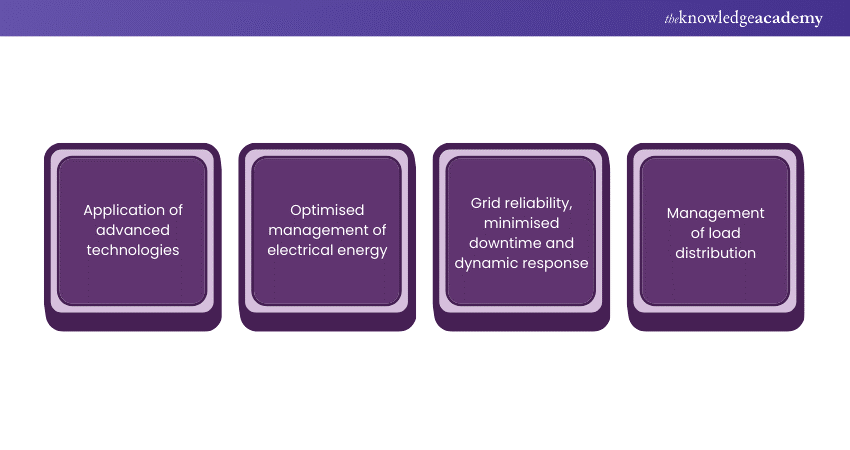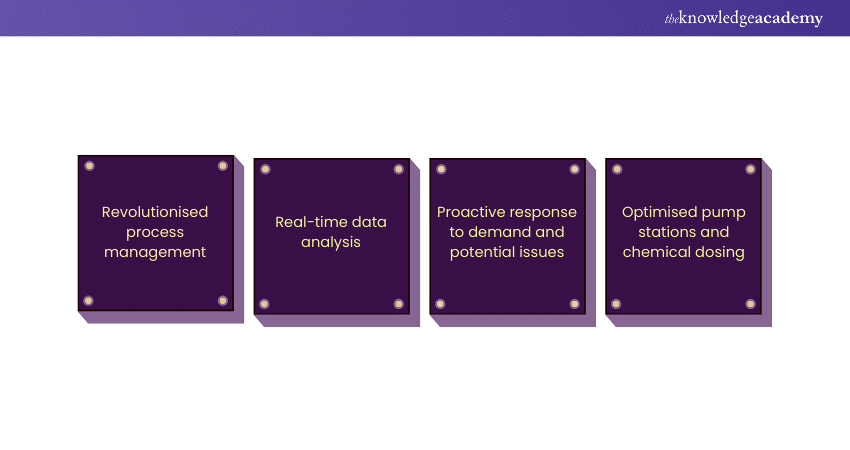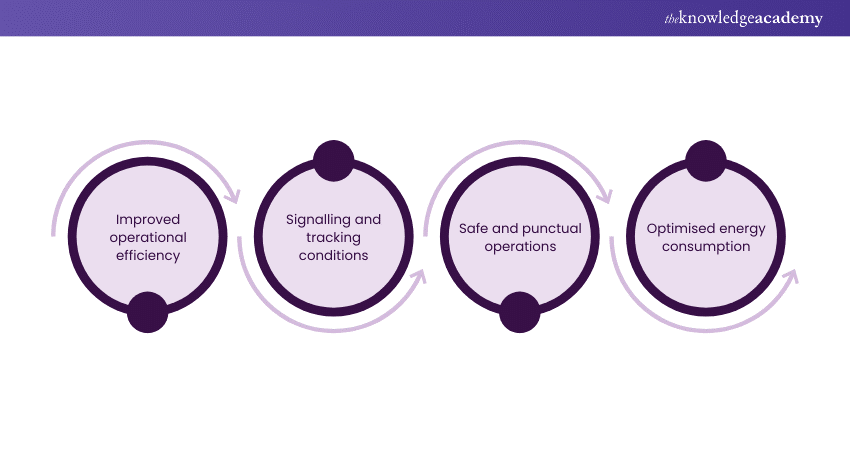We may not have the course you’re looking for. If you enquire or give us a call on 01344203999 and speak to our training experts, we may still be able to help with your training requirements.
We ensure quality, budget-alignment, and timely delivery by our expert instructors.

Welcome to the world of SCADA Applications, where technology seamlessly intertwines with industrial processes, ushering in a new era of efficiency and control. SCADA, or Supervisory Control and Data Acquisition orchestrates the symphony of applications across diverse sectors.
From real-time monitoring and automation to data analytics and historical trend analysis, SCADA Applications play a pivotal role in revolutionising how industries operate. SCADA applications refer to the diverse range of industries & sectors where SCADA systems utilised for monitoring, controlling, & managing various infrastructure.
Table of Contents
1) What is SCADA?
2) Applications of SCADA
a) Electric power system management and control
b) Manufacturing facilities and industrial plants
c) Telecommunications and IT infrastructure systems
d) Water treatment plants and management of sewage systems
e) Traffic management systems
f) Control systems for lifts and elevators
g) Building automation, facilities, and environmental control
h) Mass transit and railway traction systems
3) What are the functions of SCADA?
4) Conclusion
What is SCADA?
Supervisory Control and Data Acquisition (SCADA) represents a sophisticated technological framework that revolutionises the way industries monitor and control their operational processes. At its core, SCADA is an integrated system designed to collect, process, and analyse real-time data from various sensors and devices across a network.
The primary objective of SCADA vs DCS is to provide a centralised platform for overseeing and managing industrial operations efficiently. In essence, SCADA acts as the eyes and ears of industrial processes, offering a comprehensive view of the entire system. It enables operators and decision-makers to monitor diverse parameters, such as temperature, pressure, flow rates, and other relevant metrics, crucial for maintaining optimal performance.
Moreover, the system's supervisory control feature allows operators to intervene, adjust settings, and make informed decisions based on the data received. One of SCADA's distinguishing features is its ability to communicate bidirectionally, allowing for both data acquisition and control actions.
Through a network of sensors, remote terminal units (RTUs), and programmable logic controllers (PLCs), SCADA facilitates real-time communication with field devices. This connectivity empowers industries to respond promptly to anomalies, enhance efficiency, and minimise downtime.

Applications of SCADA
SCADA finds diverse applications across industries, optimising industrial control systems, managing energy grids, enhancing water and wastewater processes, streamlining transportation and traffic control, and fostering efficiency in manufacturing. When preparing for SCADA Interview Questions, candidates often need to demonstrate knowledge of how SCADA systems improve efficiency in these critical sectors. Its adaptability and real-time monitoring capabilities make SCADA an invaluable tool for improving operational performance and decision-making in complex industrial environments:
a) Electric power system management and control

Electric power system management and control involve the application of advanced technologies, including Supervisory Control and Data Acquisition (SCADA), to oversee and optimise the generation, transmission, and distribution of electrical energy.
This comprehensive approach ensures grid reliability, minimises downtime, and responds dynamically to fluctuations in demand. By monitoring grid conditions, managing load distribution, and facilitating efficient energy routing, power system management and control play a crucial role in maintaining a stable and resilient electrical infrastructure.
b) Manufacturing facilities and industrial plants
In manufacturing facilities and industrial plants, SCADA serves as a linchpin for streamlined operations. It monitors and controls various processes, optimising production efficiency, ensuring equipment reliability, and facilitating data-driven decision-making.
From regulating machinery to managing inventory and quality control, SCADA enhances productivity. Its real-time insights enable swift responses to operational anomalies, reducing downtime and contributing to cost-effective and agile manufacturing processes in a rapidly evolving industrial landscape.
c) Telecommunications and IT infrastructure systems
In telecommunications and IT infrastructure systems, SCADA functions as a critical tool for monitoring and managing complex networks. It enables real-time oversight of communication equipment, data centres, and network devices, ensuring seamless operations. SCADA's role extends to fault detection, performance optimisation, and resource allocation.
By providing centralised control and analytics, it contributes to the reliability and efficiency of telecommunications and IT infrastructure, supporting the uninterrupted flow of data and services in our interconnected digital world.
d) Water treatment plants and management of sewage systems

In water treatment plants and sewage systems, SCADA revolutionises the management of critical processes. It monitors water quality parameters, regulates treatment equipment, and ensures efficient distribution. SCADA enables real-time data analysis, facilitating proactive responses to variations in demand and potential issues.
By optimising pump stations, valves, and chemical dosing, SCADA enhances the overall performance of water treatment and sewage systems, contributing to sustainable resource management and safeguarding environmental health in urban and industrial settings.
e) Traffic management systems
In traffic management systems, SCADA plays a pivotal role by providing real-time insights and control over diverse components. It monitors traffic flow, signals, and surveillance devices, facilitating efficient urban mobility. SCADA enables adaptive traffic control, responds to congestion, and enhances overall road safety.
By analysing data from various sources, it empowers authorities to make informed decisions, optimising traffic patterns and contributing to the development of smart and responsive transportation infrastructures in modern urban environments.
f) Control systems for lifts and elevators
In lift and elevator control systems, SCADA ensures smooth and safe vertical transportation. It oversees the operation of lifts, monitoring parameters like speed, load, and door status. SCADA's real-time data analysis enhances performance, detecting malfunctions and minimising downtime.
By providing centralised control and diagnostics, it contributes to efficient maintenance, elevating safety standards. Whether in commercial buildings or residential complexes, SCADA optimises lift and elevator systems, ensuring reliable and secure vertical mobility in various urban and architectural settings.
g) Building automation, facilities, and environmental control
In building automation and environmental control, SCADA orchestrates an intelligent framework for efficient facility management. It monitors and regulates HVAC systems, lighting, security, and other essential components. SCADA's real-time data analysis ensures optimal resource usage, energy efficiency, and occupant comfort.
By centralising control and offering predictive insights, it facilitates proactive responses to changing environmental conditions. SCADA's integration in building automation enhances sustainability, reduces operational costs, and provides a seamless and comfortable environment within commercial and residential structures.
h) Mass transit and railway traction systems

In mass transit and railway traction systems, SCADA revolutionises operational efficiency. It monitors and controls railway infrastructure, overseeing traction power systems, signalling, and track conditions. SCADA's real-time analysis ensures safe and punctual operations, responding swiftly to potential issues.
By centralising control, it optimises energy consumption and contributes to reliable and sustainable transportation. SCADA's role in mass transit and railway traction systems enhances safety, reliability, and overall performance, catering to the dynamic demands of modern urban transportation.
What are the functions of SCADA?
Certainly, let's break down the functions of SCADA into the specified five points:
1) Automated control and management: SCADA facilitates the automated control and management of industrial processes and machines in real-time from remote locations. This capability enhances operational efficiency by allowing operators to monitor, adjust, and optimise processes without physical presence, fostering flexibility and responsiveness.
2) Data collection and analyses: SCADA excels in data collection and analysis, gathering real-time information from sensors and devices. This functionality provides valuable insights into process variables, enabling informed decision-making for better resource utilisation and overall system optimisation.
3) Event and alarm notifications: SCADA ensures proactive monitoring through event and alarm notifications. It alerts operators to critical events or deviations from set parameters, allowing for swift responses to potential issues. This feature helps minimise downtime and prevent disruptions in industrial processes.
4) Report generation: SCADA systems are equipped to generate detailed reports based on collected data. These reports provide a comprehensive overview of system performance, allowing operators and management to assess efficiency, identify trends, and make informed decisions to enhance overall productivity.
5) Historical Data Logging, Archiving, and Retrieval: SCADA offers robust historical data logging capabilities, archiving past data for future reference. This functionality enables industries to review and analyse historical trends, troubleshoot issues, and track the evolution of processes over time. Retrieving historical data is essential for strategic planning and continuous improvement initiatives.
Acquire the understanding of forensics management by signing up for our SCADA Training now!
Conclusion
In conclusion, the diverse and transformative capabilities of SCADA Applications shine as a beacon in the realm of industrial automation. From real-time control to meticulous data analysis, event notifications, report generation, and historical data management, SCADA Applications stand at the forefront, driving operational excellence and innovation across various industries. A comprehensive understanding of the Advantages and Disadvantages Of SCADA will allow businesses to leverage its full capabilities while addressing its limitations effectively.
Frequently Asked Questions
What is SCADA?

SCADA, or Supervisory Control and Data Acquisition, is a system that enables real-time monitoring, control, and data acquisition of industrial processes. It employs sensors, controllers, and communication networks to collect and analyse data, allowing operators to make informed decisions.
What is one of the primary applications of SCADA systems?

One primary application of SCADA (Supervisory Control and Data Acquisition) systems is in the management and control of electric power systems. SCADA plays a crucial role in monitoring, collecting, and analysing data related to power generation, transmission, and distribution. It also enables real-time decision-making, ensuring grid stability
What are the other resources and offers provided by The Knowledge Academy?

The Knowledge Academy takes global learning to new heights, offering over 3,000 online courses across 490+ locations in 190+ countries. This expansive reach ensures accessibility and convenience for learners worldwide.
Alongside our diverse Online Course Catalogue, encompassing 19 major categories, we go the extra mile by providing a plethora of free educational Online Resources like News updates, Blogs, videos, webinars, and interview questions. Tailoring learning experiences further, professionals can maximise value with customisable Course Bundles of TKA.
What is Knowledge Pass, and how does it work?

The Knowledge Academy’s Knowledge Pass, a prepaid voucher, adds another layer of flexibility, allowing course bookings over a 12-month period. Join us on a journey where education knows no bounds.
What are related PRINCE2 courses and blogs provided by The Knowledge Academy?

The Knowledge Academy offers various PRINCE2 courses, including PRINCE2 Foundation, Practitioner, and Agile. These courses cater to different skill levels, providing comprehensive insights into Project Management methodologies.
Our Project Management blogs covers a range of topics related to PRINCE2, offering valuable resources, best practices, and industry insights. Whether you are a beginner or looking to advance your Project Management skills, The Knowledge Academy's diverse courses and informative blogs have you covered.
Upcoming Business Skills Resources Batches & Dates
Date
 SCADA Training
SCADA Training
Fri 23rd May 2025
Fri 25th Jul 2025
Fri 26th Sep 2025
Fri 28th Nov 2025






 Top Rated Course
Top Rated Course


 If you wish to make any changes to your course, please
If you wish to make any changes to your course, please


